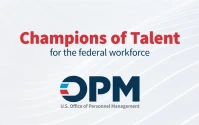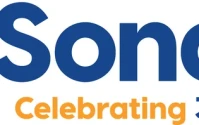Here is your feature article, written in the persona of Dr. Aris Thorne.
*
New York's $400 'Inflation Check' Isn't Just a Refund—It's a Glimpse into Our Analog Past
This fall, millions of New Yorkers will perform a ritual that feels both familiar and jarringly out of place in 2025. They’ll walk to their mailboxes, sift through junk mail and bills, and pull out a paper check from the state government. For many, it will be a welcome sight—a one-time "inflation refund" of up to $400, designed to ease the sting of rising costs. And on the surface, this is a good thing. It’s an acknowledgment from leaders like Governor Kathy Hochul that families are struggling.
But when I first read New York Inflation Refund Checks Are Coming Soon: What to Know Now, I wasn’t thinking about the money. My first thought, honestly, was a question that echoed in my mind: We're still doing it this way?
Because this isn't just about a tax refund. This small, well-intentioned government program is a perfect, almost painful, case study of the massive gap between our personal technological lives and the creaking, analog machinery of our civic infrastructure. We live in an age of instant peer-to-peer payments, of biometric security, of global financial networks that move trillions in microseconds. Yet, to get a few hundred dollars to 8.2 million of its own citizens, the state of New York is firing up the printing presses, stuffing envelopes, and relying on the postal service.
It’s a ghost of bureaucracy past, haunting our digital present. And it should be a wake-up call for all of us.
The Friction of a Steam-Powered System
Let’s look at the mechanics of this rollout, because the details are where the story truly lies. The eligibility is based on your 2023 tax return, a snapshot of data that’s already two years old. The checks will be mailed out over several weeks, from late September through November. And here’s the part that truly stopped me in my tracks: the New York Department of Taxation and Finance has explicitly stated there will be no delivery schedule and that their call center representatives cannot provide the status of your check.
Think about that for a second. You can track a $10 pizza from the oven to your doorstep in real-time, but a state government can’t tell you where your own money is. Even if you get your tax refunds via direct deposit every year, that system won’t be used. It’s paper checks for everyone.

This isn't a failure of individuals; it's a failure of the system itself. We’re dealing with legacy infrastructure—in simpler terms, we're talking about digital dinosaurs, ancient government codebases and siloed databases that are incredibly difficult and expensive to update. This entire process is a monument to friction. It’s the administrative equivalent of trying to power a Tesla with a steam engine. It works, eventually, but it's astonishingly inefficient, opaque, and fundamentally disconnected from the way we live now.
When I see this, I don't just see a logistical challenge. I see a massive opportunity cost. How many hours will be wasted by people anxiously checking their mail? How many checks will be lost, stolen, or sent to old addresses? How much trust is eroded when a government's primary financial interaction with its citizens feels like a shot in the dark? Why, in an era where we carry supercomputers in our pockets, are we still forced to interact with civic systems that operate on the logic of the 1980s?
A Blueprint for Instant, Trustworthy Governance
Now, imagine a different reality. Imagine if this process were designed from the ground up using today's technology. It wouldn't just be better; it would be transformative.
Instead of a paper check, you’d get a notification on your phone. The funds would be deposited instantly into a secure state-verified digital wallet or the bank account of your choice. The eligibility wouldn't be based on two-year-old data but on near-real-time information, ensuring the money goes to people who need it now, not who needed it two years ago. The entire system would be transparent, secure, and immediate.
This is the kind of breakthrough that reminds me why I got into this field in the first place. The technology to do this already exists. We have the cryptographic tools for security, the database architecture for speed, and the user-interface design to make it accessible to everyone. Building this system is not a technological fantasy; it’s an engineering challenge waiting for the political will to solve it.
This leap is about more than just convenience. It’s a paradigm shift, like the move from a town crier to a printing press, or from handwritten ledgers to spreadsheets. When you upgrade the fundamental operating system of governance, you change what’s possible. Imagine a future where emergency relief after a natural disaster isn’t a bureaucratic nightmare of forms and waiting, but an instantaneous transfer of aid. Imagine tax filing becoming an automated, pre-filled process you simply approve. Imagine a system where civic participation feels as seamless and intuitive as everything else in our digital lives.
Of course, building this raises huge questions about data security, privacy, and the digital divide. How do we ensure everyone, regardless of their tech-savviness or access to broadband, can use this system safely? These are not small hurdles, but they are the right problems to be solving. They are forward-looking challenges, not the backward-looking problems of lost mail and clogged phone lines.
This Isn't a Check, It's a Call to Action
In the end, this New York inflation refund is a bandage on a wound. The money will help, no doubt. But the real, chronic issue isn't just the economic pain of inflation; it’s the institutional pain of an outdated civic infrastructure that is fundamentally misaligned with the 21st century.
Let’s take the check. Let’s be grateful for the temporary relief. But let’s not mistake the symptom for the cure. This paper check in your mailbox isn't just money. It’s a message. It’s a quiet, flimsy, paper-based reminder that we are capable of so much more. The true relief won’t come from a one-time payment, but from finally building the smart, responsive, and trustworthy systems that we all deserve. That’s the future we should be demanding.










